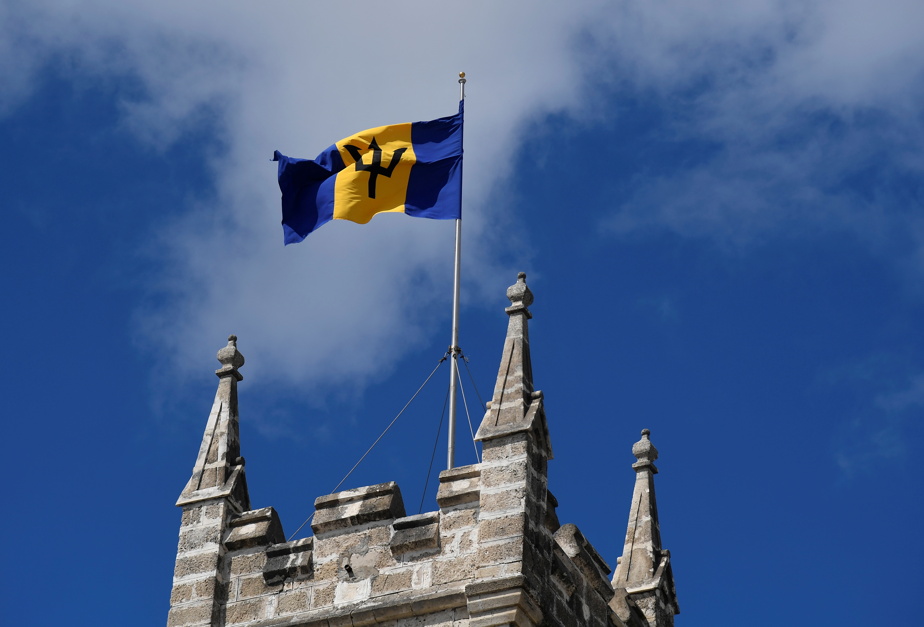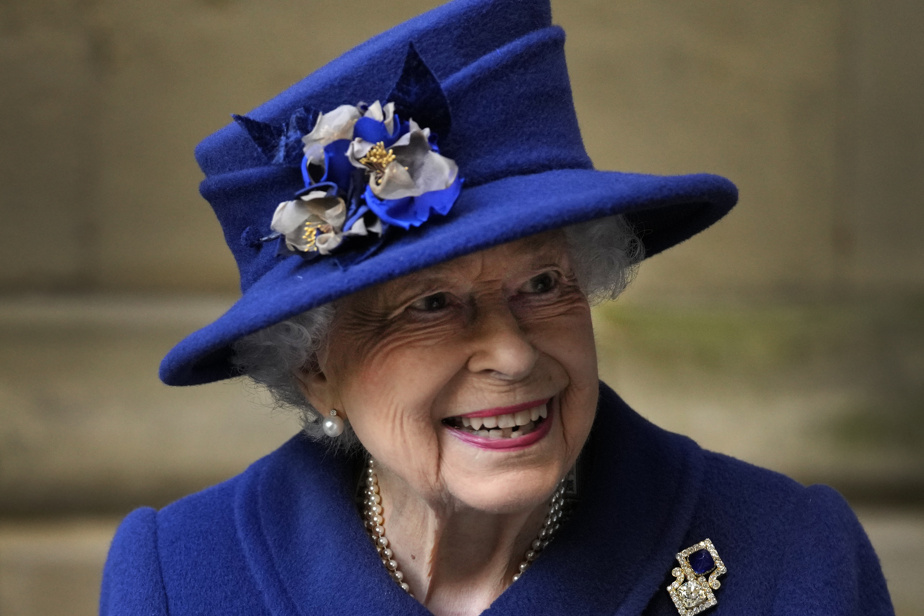(Bridgetown) Queen Elizabeth II will lose a new jewel in her crown with the swearing-in Monday evening of the first president in the history of Barbados, the tiny Caribbean island that became a republic.
Already independent from the United Kingdom since 1966, Barbados will celebrate its transition from monarchy to republican rule after nearly four centuries of submission to British sovereignty.

Photo: Toby Melville, Reuters
The flag of Barbados flies atop Parliament in Bridgetown, Barbados on November 29, 2021, as the former British colony prepares to become a republic.
The island is famous for its paradise beaches and beaches, and for being the birthplace of international superstar Rihanna, she will have her head of state, Sandra Mason, until then as the country’s governor-general, after being elected in October by indirect all. suffrage.
He will officially take office at midnight in the capital, Bridgetown. The Queen standard would be abolished and the appointed president would be appointed before the nation’s highest judge. The presidential flag will then be raised.
Prince Charles called
Invited for the occasion, Prince Charles, heir to the crown, will join the festivities.
Barbados will remain a member of the Commonwealth of Nations, British Prime Minister Boris Johnson indicated in a statement on Monday.
“We will remain loyal friends and allies, building on the affinities and lasting bonds between our peoples and the special bond of the Commonwealth,” Johnson wrote.
In Barbados, the Prince of Wales was caught up in a controversy that erupted over the weekend over comments he allegedly made a few years ago about the skin color of the future couple’s children formed by her son Harry and Meghan Markle.
The comments, which were contained in a book due to be published Tuesday, were denied by Prince Charles’ services: “This is fiction and does not merit further comment,” a Clarence House spokesperson said.
Questions of British influence and racism were instrumental in Barbados’ decision to become a republic, with the island still marked by the legacy of centuries of slavery.
More pressing issues
Critics were already targeting Prince Charles’ invitation to her by Barbados Prime Minister Mia Motley, who would award him the island’s highest honor, the Medal of Freedom.
“The British royal family is guilty of exploitation in this region, yet they have offered no official apology or some form of compensation for past wrongs,” said Christina Hinds, professor of international relations at the University of the West Indies in Barbados.
For some activists, such as Veraha Bulbulia, founder of the Barbados Muslim Association, British colonialism and slavery are directly responsible for the inequality on the island.
“Differences in wealth, the ability to own property, even access to bank loans, it all relates to the structures that were set up under British rule,” says the 26-year-old.
“The physical limitations (of slavery) are broken and we don’t wear them anymore, but the mental limitations are still in our minds,” she says.
But some residents point to more pressing problems, including the economic crisis caused by the COVID-19 pandemic, which has only underscored the country’s reliance on tourism, especially from the United Kingdom.
Before the virus appeared, the perfectly clear island was visited by more than a million people each year.
The tranquility of the normally busy streets of Bridgetown, the scant number of visitors and the moribund nightlife today testify to the hardships faced by the pearl of the Lesser Antilles, which has a population of about 287,000.
The unemployment rate reached nearly 16%, an increase of 9% over previous years, despite increased government borrowing to finance public sector works and job creation.

“Extreme twitteraholic. Passionate travel nerd. Hardcore zombie trailblazer. Web fanatic. Evil bacon geek.”

